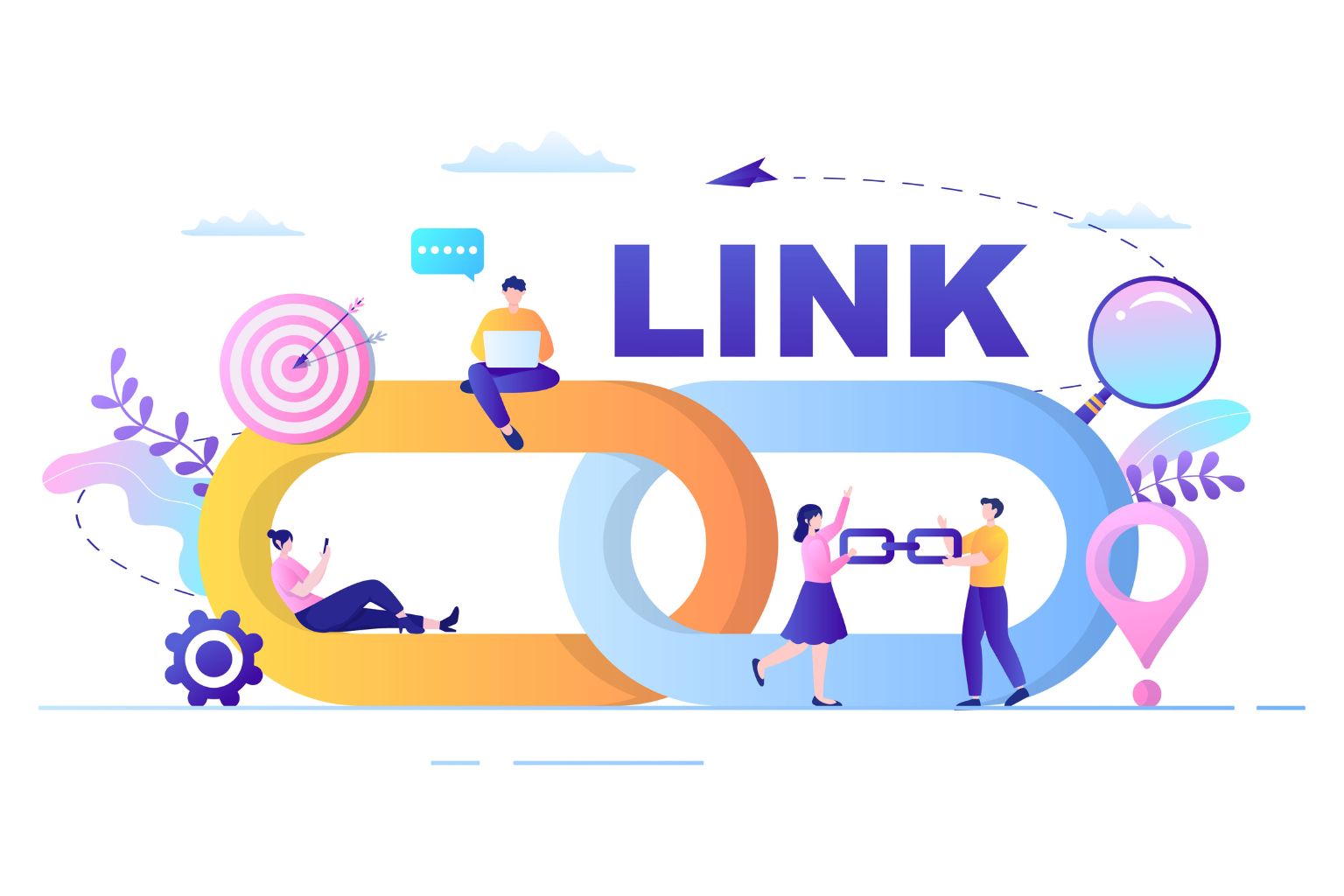Link Building has been a vital component of Search Engine Optimization (SEO), playing a crucial role in improving website visibility and authority. This article explores the future of link building, examining emerging trends and making predictions on how this practice will evolve in the coming years. From the influence of artificial intelligence to the impact of voice search and evolving link metrics, let us dive into the exciting prospects of link building in the future.
Contents
WHAT IS LINK BUILDING?
Link building is the process of acquiring hyperlinks from other websites to your website. These hyperlinks, commonly referred to as backlinks, are essentially votes of confidence from other websites, indicating that your website is valuable, trustworthy, and relevant.
Link Building is an integral part of Search Engine Optimization (SEO) because search engines, like Google, consider backlinks as a crucial ranking factor. When a website has a higher number of quality backlinks, it tends to rank higher in Search Engine Result Pages (SERPs), which increases its visibility and organic traffic.
The concept behind link building is based on the idea that if other reputable websites link to your content, it signifies the quality and relevance of your website or specific pages. The more high-quality backlinks you have, the more search engines perceive your website as authoritative and trustworthy.
THE RISE OF ARTIFICIAL INTELLIGENCE (AI):
Artificial Intelligence (AI) has been remodeling numerous industries, and hyperlink building is no exception. AI-powered tools and algorithms can analyze vast amounts of data, helping to identify relevant link prospects, conduct outreach campaigns, and monitor backlink profiles more efficiently.
Machine learning algorithms can understand patterns and user behavior to generate valuable insights for link-building strategies. With AI, link builders can save time and effort, focusing on high-value tasks while automation takes care of repetitive processes.
VOICE SEARCH AND NATURAL LANGUAGE PROCESSING (NLP):
As voice search continues to grow in popularity, link-building strategies will need to adapt to accommodate this emerging trend. Voice-activated devices like smart speakers and voice assistants rely on Natural Language Processing (NLP) to understand user queries.
Link builders will need to optimize content for voice search by targeting long-tail keywords and providing concise, conversational answers that align with user intent. Additionally, voice search is likely to impact link acquisition, as voice-enabled devices often provide answers without relying on traditional search results.
LINK METRICS AND QUALITY SIGNALS:
While the importance of backlinks remains strong, the way link quality is measured is evolving. Search engines are becoming smarter in assessing the value and relevance of links. Traditional metrics like domain authority and PageRank may still hold some weight, but search engines are increasingly focusing on user signals, such as engagement, click-through rates, and user experience. Link builders will need to emphasize the quality and relevance of links rather than solely focusing on quantity.
INFLUENCER MARKETING AND LINK BUILDING:
Influencer Marketing has emerged as a powerful digital marketing strategy and can also play a role in link-building. Collaborating with influencers can help secure high-quality backlinks, as influencers often have a strong online presence and authority in their respective niches.
Link builders can establish relationships with influencers through sponsored content, guest posts, or partnerships. Thereby gaining valuable links and exposure to a broader audience.
SOCIAL MEDIA SIGNALS AND LINK BUILDING:
Social media has become an integral part of our daily lives, and its influence on link-building is growing. While search engines do not consider social media signals as direct ranking factors, social platforms can still generate valuable backlinks and referral traffic.
Engaging with audiences on social media, sharing high-quality content, and building a strong Social media presence can help increase brand visibility, attract potential link prospects, and indirectly impact SEO performance.
There are various strategies for link building, including:
1. Guest Blogging:
Writing and publishing articles on other websites in exchange for a backlink to your site.
2. Resource Link Building:
Creating valuable content or resources that others naturally want to link to.
3. Broken Link Building:
Identifying broken links on other websites and suggesting your content as a replacement.
4. Outreach and Relationship Building:
Reach out to website owners, bloggers, and influencers to request backlinks or establish collaborative partnerships.
5. Social Media Promotion:
Sharing your content on social media platforms to attract attention and potentially earn backlinks.
6. Directory Submissions:
Submitting your website to reputable online directories to generate backlinks.
When engaging in Link Building, it is important to focus on acquiring high-quality backlinks rather than pursuing quantity alone. Search engines place great value on backlinks from authoritative and relevant websites within your industry or niche.
However, it’s essential to note that link-building should be done ethically and naturally, avoiding manipulative tactics that violate search engine guidelines. Unethical practices, known as black hat SEO, can lead to penalties and harm your website’s reputation. Therefore, it’s crucial to prioritize building valuable content and genuine relationships to earn backlinks naturally over time.
CONCLUSION:
The future of link building is undeniably exciting, with emerging trends and technologies transforming the way we approach this practice. Artificial Intelligence, Voice Search, Evolving Link Metrics, Influencer Marketing, and Social Media Signals are all shaping the future of link building. By embracing these changes and integrating them into their strategies, businesses can harness the full potential of link-building and achieve long-term success in the ever-evolving world of SEO.
Frequently Asked Questions (FAQs)
- What are “natural” links, and why are they important?
Natural links are links that are editorially given without any manipulation. They are important because they signal to search engines that your content is valuable and worth referencing.
- Will social media play a role in the future of link-building?
Social signals (shares, likes) indirectly influence link-building. Creating shareable content and promoting it on social media can help attract both social signals and natural backlinks.
- What is the role of mobile optimization in link building’s future?
Mobile optimization is vital because an increasing number of users access websites on mobile devices. Websites with responsive designs and fast loading times tend to perform better in terms of link acquisition.
- What are some common link-building mistakes to avoid in the future?
Avoid link schemes, excessive anchor text optimization, and low-quality link directories. Instead, prioritize building a diverse and natural link profile.
If you are looking for the Best Digital Marketing Agency for your Business please contact Bliss Marcom.
Office Address in Noida.


